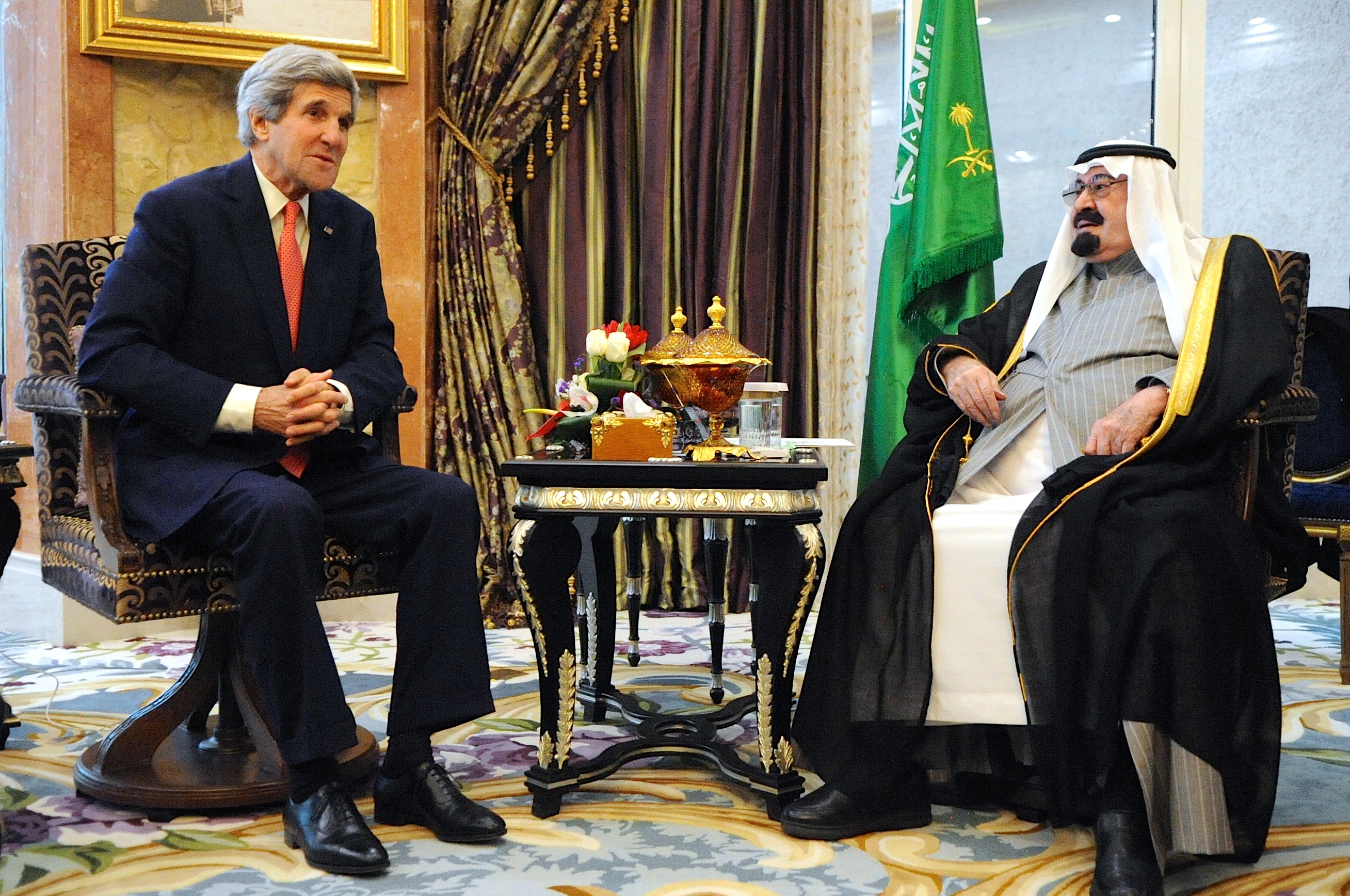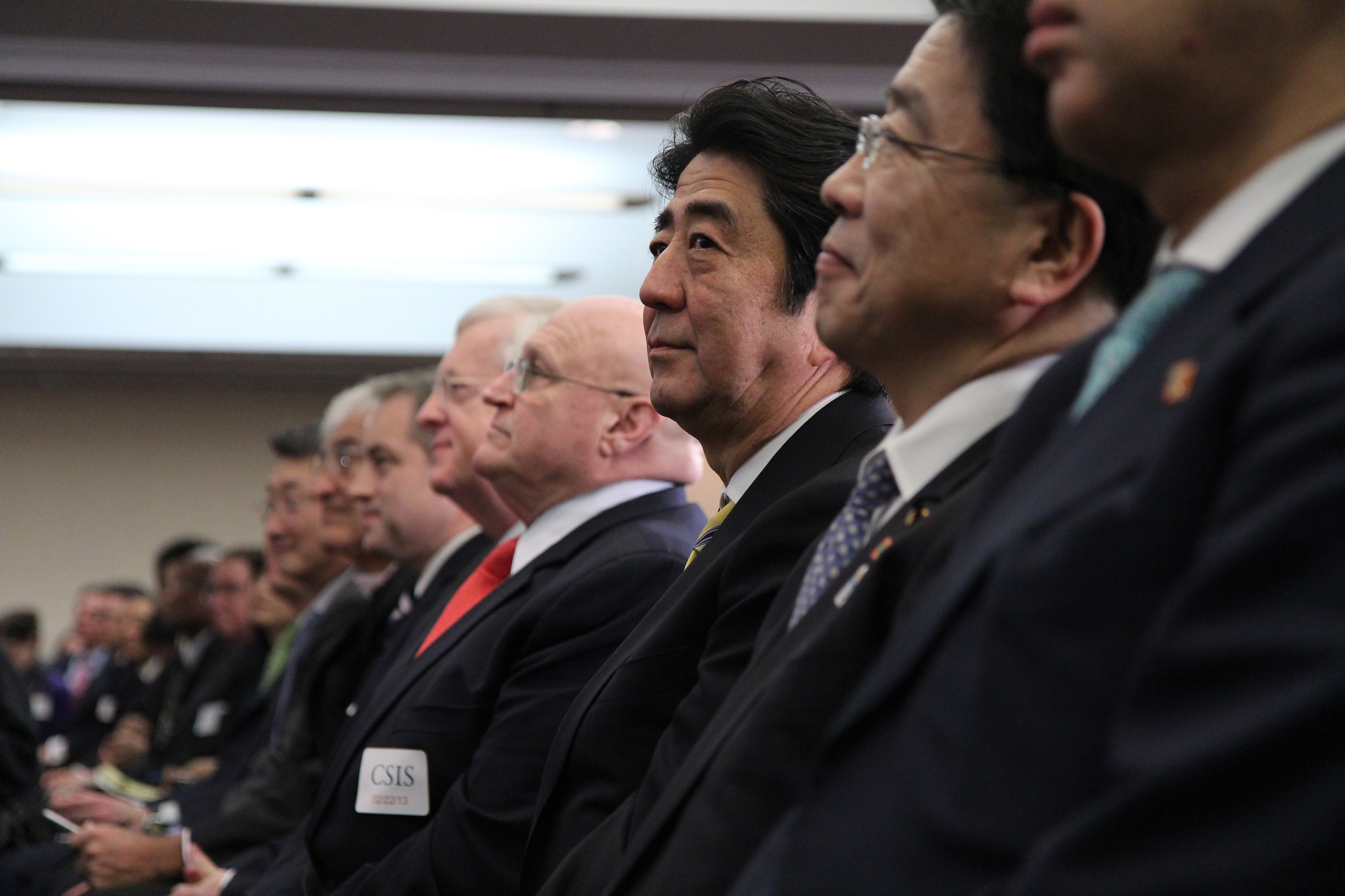In a stark refusal that shocked the international community, the Saudi Arabian Ministry of Foreign Affairs announced “the manner, the mechanisms of action, and double standards existing in the Security Council prevent it from performing its duties and assuming its responsibilities towards preserving international peace and security.”[1] The move by the Saudi Arabians to reject their elected seat as a non-permanent member of the United Nations Security Council (UNSC) was unprecedented; no country in the Council’s 68-year history has ever turned down this opportunity. While some, particularly Middle Eastern states such as Egypt, Qatar, Bahrain, UAE, and Kuwait, expressed support, many in the international community articulated bewilderment about the decision. Saudi diplomats had been lobbying for years for the Arab seat and were supposedly preparing special diplomats for the position.[2]
Although the Saudi Arabian decision to turn down the seat overtly addressed flaws within the United Nations (UN), the Saudi Arabians were more emphatically expressing their discontent with recent American policy in the Middle East. Specifically, Saudi Arabians pointed to three main points of contention: the inability to find a solution on the Palestinian question, the failure to create a Middle East free of weapons of mass destruction, and the response to the conflict in Syria. The choice of turning down the opportunity for a well-heard international voice at such a critical time is not a statement that should be taken lightly.
Aboard the USS Quincy in February 1945 with King Abdul Aziz, President Franklin D Roosevelt proclaimed that, “the defense of Saudi Arabia is a vital interest for the defense of the United States of America.”[3] Although the US recognized the Saudi Kingdom since 1931, the USS Quincy meeting solidified a multifaceted political partnership that has lasted for decades. Although the Saudi-US political relationship emerged prominently after World War II, the oil company Aramco, founded in the 1930s, laid the foundations for an important economic partnership.[4] By the time of the Cold War, the West found a reliable ally in Saudi Arabia. The civil war conflict with Yemen in the 1960s positioned the Saudi Arabians against a regional Soviet ally. Moreover, the financial impact of Saudi oil revenues contributed to the global fight against communism. During the 1980s, the Saudi-US partnership was bolstered by the destruction of the Iran-Iraq war. The 1990s were marked by over $6 trillion in surplus oil investments benefitting the US, while the Saudis also coordinated with the US to raise oil prices.[5] US President George H.W. Bush had extremely powerful ties to the Saudi family and the oil lobby, which put the US in a favorable position amongst the Gulf States after the Cold War.[3]
Despite the relatively strong strategic balance between the US and Saudi Arabia, the 9/11 attacks deeply threatened the partnership. Most of the 9/11 attackers were Saudi Arabian, which changed US public perception of Saudi Arabia and the bilateral relationship. Former Secretary of State Hillary Clinton signed a Wikileaks-released document that stated, “More needs to be done since Saudi Arabia remains a critical financial support base for al-Qaeda.”[6] Alleged Saudi support for terrorism deeply undermined the stability of the US-Saudi relationship. By 2002, the two countries were undergoing a diplomatic chill. Saudi Arabians believed the US was taking their cooperation in the partnership for granted. Moreover, they did not appreciate what they perceived to be President Bush’s coddling of the Israelis. In 2003 and 2004, a series of al-Qaeda attacks on Saudi Arabia, which were confronted and dismantled by Saudi security forces, helped to revitalize the cooled relationship. In addition, 2009 was marked by the attempted assassination of Counterterrorism Chief Prince bin Nayef. Both parties perceived a common enemy once again. The Saudi king stated in a Wikileaks released cable that the Saudis are willing to help the US “cut the head off the snake,” referring to perceived enemies such as Iran and al-Qaeda.[5] The Saudi-US embassy states that the relationship “has reflected the ideals of independence, justice and peace that are cornerstones of the United Nations Charter.” Although times since World War II have changed greatly, the basic principles – security cooperation, new arms sales, and security training—have remained constant.
Last October, when Secretary of State John Kerry went to visit the Middle East he offered to meet with Prince Bandar. Prince Bandar replied and told Kerry he could meet him at the airport, which was interpreted as an insult to the American extension of diplomatic goodwill. Currently, the US and Saudi Arabia are seeing a “major shift” in foreign policy, according to Prince Bandar.[7] According to the political theorist Robert Mead, the three factors the Saudis listed in their refusal of the non-permanent UNSC seat are the three most important current interests within the Middle East today. Saudi Arabia’s regional concerns are keen, however, they need to work on their situation at home. In response to the domestic unrest, Riyadh has used a four-pronged strategy of pumping billions of public works dollars into the economy, arresting the opposition, rescuing friendly governments in the region through counter-revolutions, and playing the sectarian card regarding unrest in the country’s Eastern Region. However, Obama’s foreign policy across the Middle East reflects more perceptiveness to the issues than Saudi Arabia, because of a willingness to revise strategy and work with multiple partners.
One such issue is the ongoing conflict in Syrian, which author Rami Khouri refers to as “the biggest proxy war of all time.”[8] In September 2013, when the US announced an airstrike on Syria, Saudi Arabia was in full support. However, Saudi Arabia was immensely disappointed at the US’ ultimate decision not to strike after the Russian-made deal. In particular, Saudi Arabia has been one of the most outspoken countries in support of the opposition. By July 2011, Saudi Arabia was vocal in its disapproval of the Assad regime and pulled its ambassador out of Syria, encouraged by both protests at home and rising concern about an Iran-Syria partnership. Although in the past Saudi Arabia made a concerted political and economic effort to sway Syria away from Iran, Assad has still kept his trust with the Iranians. By 2012, the Saudi government was supplying weapons to the rebels. The Saudi king sees it as his personal obligation to defend the lives of Sunni Muslims in Syria while also preventing the Shi’ite sect of Islam dominant in Iran from spreading.
Saudi Arabia’s discontent with Syria is not the only disappointment, but it does represent the growing difference between the US and Saudi Arabia on policy decisions. The Saudis were upset that they were not included as a part of the Iranian deal and are doubtful that Iran will truly become more compromising with their nuclear program. At this point, Saudi Arabia sees Iran as its most serious threat within the region. Because US policy is not ameliorating these fears, Saudi Arabia displays its dissatisfaction with US strategic policies. In response to the November 24 Joint Plan of Action in Geneva, the Saudis have called for a union with the Gulf Cooperation Council states for their own self-defense.[9] All of these incidents express a developing anger that the Saudis have for the US in regards to recent policy decisions.
Currently, the problem of a shifting relationship between the Saudis and the Americans is not one that can be simply addressed. The language of Saudi diplomats is becoming more and more frustrated with the US. Recently, Saudi Assistant Foreign Minister Madani stated that, “Blind dependence on a foreign power is no longer acceptable.”[9] However, some things are being done in order to improve the state of the relationship. Secretary of State Kerry, during his tour of the Middle East, hosted a joint press conference with Saudi Arabia. During the conference, which took place on November 4, Kerry stated “the bonds of our friends are much stronger than any of those differences at that moment in time.”[10]
Concordantly, the US needs to make better efforts at sending popular diplomats to the region. The Bush family and the Saud family have ties that extend across both political and economic boundaries. The Saudi Royal family has invested a large amount of money into the Carlyle Group, which was a private equity firm run partly by George H.W. Bush. In addition, it might be useful for the US to consider sending either John Brennan or George Tenet to the region. Both are CIA directors with experience working in and building trusting relationships with Riyadh. Moreover, the US, in order to improve the relationship even further, should also consider adding the Saudis to the next Iran talks scheduled to take place. Because both the US and Saudi Arabia are so vested in the state of Iran, it is important to have all strategic players available when discussions take place. Considering the deep history of the US using Saudi Arabia to contain Iran during the Cold War, it would be foolish to exclude Saudi Arabia from this process.
When the Saudi Arabian foreign ministry announced that they would not accept their elected seat to the UNSC, they shocked the world. The country clearly did not make this decision based on apathy for the issues as the situation in the Middle East is more pressing than ever. However, the situation in the Middle East also has the most room for change. While Jordan occupies the non-permanent seat that Saudi Arabia has left vacant, the issues that Saudi Arabia highlighted are rapidly changing. Iran, under Rouhani’s leadership, is showing signs of acceding to international demands. The Organization for the Prohibition of Chemical Weapons recently won a Nobel Peace Prize in December 2013 for their disarmament of chemical weapons in Syria.[11] All of the issues that Saudi Arabia highlighted are interconnected; they represent a greater struggle of sectarianism, religious politics, and a move towards a more democratic Middle East. Although Saudi Arabia is unhappy with the US’ actions in the Middle East, American policy is undeniably changing the geopolitical landscape.
Although Saudi statements about the US have been less than kind recently, the countries will not dissolve their partnership any time soon. The US has relied on Saudi Arabia since that fateful meeting on the USS Quincy in 1945. Over the years, both countries have achieved mutual security interests in containing Pakistan and Iran.[10] In fact, although many see Israel as the only “special relationship” that the US has in the region, its relationship with Saudi Arabia dates back even further. Over the last half century, the US has supplied more than $150 billion in weapons, and in 2009, the countries signed a $10.8 billion weapons deal.[12] Oil capital, along with weapons, also helps to preserve Saudi and US levels of dominance across the world. In the past, the countries have weathered multiple serious disputes but the partnership remains a strategic priority for both.
Despite this strong strategic alliance, the nature of the relationship must change to reflect a changing world. For too long, the US has largely accepted many problematic aspects of the regime, from the beheading of migrant workers, to the Kingdom-funded terrorists, to the refusal to let women drive. Arabs across the region are rising up and demanding basic dignity. Although the partnership between Saudi Arabia and the US indeed achieves strategic goals, now is the best time to address some of the ideological differences. According to political analyst Ian Williams, “Saudi diplomacy by its very nature has to be somewhat contradictory.”[13] However, with real progress in the foreseeable future, the US has the perfect opportunity to create lasting stability. This stability does not have to come from economic dominance or Cold War-inspired intimidation. The reality of a Cold War situation can and should be avoided at this point in time. Instead, there is the potential for the Middle East with leaders that represent them freely and fairly, as exemplified by the Iranian nuclear weapons deal. Although the alliance of the US and Saudi Arabia will undoubtedly be influential for years to come, the US will be better off maintaining the hopeful progress in the Middle East instead of blindly acceding to Saudi Arabia’s demands.
Lindsey Bressler
International Affairs and Economics ’18
References:
[1] UN Watch. “Full Text: Saudi Statement Rejecting UN Security Council Seat.” View from Geneva. http://blog.unwatch.org/index.php/2013/10/18/full-text-saudi-statement-rejecting-un-security-council-seat/ (accessed December 10, 2013).
[2] Kabir, Arafat. “Saudi Arabia’s Decision to Rebuff the U.N. Security Council.” Saudi Arabia’s Decision to Rebuff the U.N. Security Council. http://www.diplomaticourier.com/news/topics/summitry/1886-saudi-arabia-s-decision-to-rebuff-the-u-n-security-council (accessed December 5, 2013).
[3] Al-Monitor. “Obama’s Presidency Brings Uncertainty to Saudi-US Relations – Al-Monitor: the Pulse of the Middle East.” Al-Monitor. http://www.al-monitor.com/pulse/politics/2013/03/obama-us-saudi-ties.html (accessed December 6, 2013).
[4] Pollack, Michael J. “Saudi Arabia and the United States, 1931-2002.” Middle East Review of International Affairs 6, no. 3 (2002): 77-101.
[5] LeVine, Stephen. “Frenemies forever: how Washington stopped worrying and learned to love Saudi Arabia, again.” Foreign Policy 184 (2011): 31-33.
[6] Walsh, Declan. “WikiLeaks cables portray Saudi Arabia as a cash machine for terrorists.” The Guardian. http://www.theguardian.com/world/2010/dec/05/wikileaks-cables-saudi-terrorist-funding (accessed December 9, 2013).
[7] Reuters. “Saudi Arabia severs diplomatic ties with US over response to conflict in Syria.” Mail Online. http://www.dailymail.co.uk/news/article-2472680/Saudi-Arabia-severs-diplomatic-ties-US-response-conflict-Syria.html (accessed December 7, 2013).
[8] Khouri, Rami. “The Arab Spring.” Class lecture, America, Islam, and the Middle East from Northeastern University, Boston, October 1, 2013.
[9] Tabbara. “With American ties frayed, Saudi Arabia calls for Gulf union.” The Daily Lebanon Star (Beirut), December 10, 2013.
[10] Hersh, Joshua. “John Kerry Seeks Saudi Arabia Reconciliation On Middle East Tour.” The Huffington Post. http://www.huffingtonpost.com/2013/11/06/john-kerry-saudi-arabia_n_4228579.html (accessed December 9, 2013).
[11] Brumfield, Ben, and Mick Krever. “Chemical weapons inspectors in Syria claim Nobel Peace Prize.” CNN. http://www.cnn.com/2013/12/10/world/europe/norway-nobel-peace-prize/ (accessed December 10, 2013).
[12] LeVine, Mark. “US-Saudi relationship status: It’s complicated.” Al Jazeera. http://www.aljazeera.com/indepth/opinion/2013/10/us-saudi-relationship-status-it-complicated-20131023131252910353.html (accessed December 9, 2013).
[13] Williams, Ian. “In Rejecting Security Council Seat, Saudi Arabia Acknowledges Realpolitik.” Wahington Report on Middle East Affairs 32, no. 9 (2013): 24-25.



